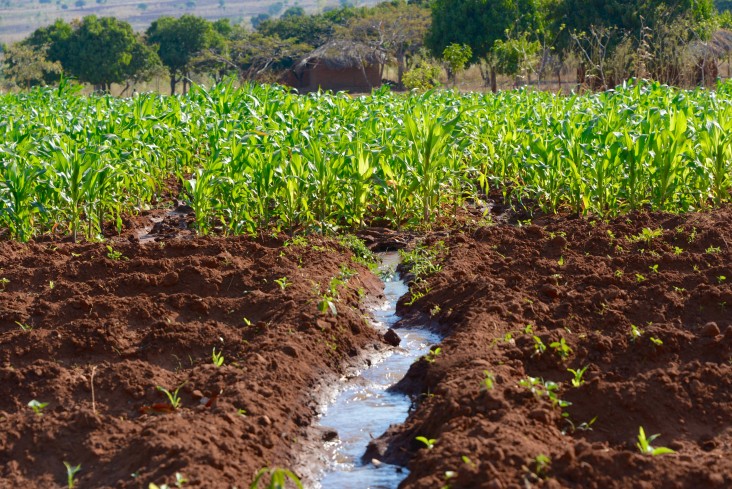Speeches Shim

Climate change affects countries across the globe. However, due to high population growth, rapid deforestation, and widespread soil erosion, Malawi’s agriculturally-based economy is particularly susceptible to climate change’s negative consequences.
Already, temperature increases and changing precipitation patterns are harming agricultural growth. To make matters worse, this problem is expected to worsen in the coming decades, when temperatures will reach the heat threshold of some crops and extended dry periods will become more common. In addition, due to the changing precipitation patterns, rainfall is likely to become more erratic and concentrated which can cause flooding and further crop damage. Overall, climate change is expected to reduce the food supply and have major implications for human welfare, harming development progress across sectors.
To address these challenges, USAID partners with the Government of Malawi (GoM) and a wide variety of Malawian institutions to advance Malawi’s low-emissions, climate-resilient development. At the national level, USAID works with the GoM to develop a strategy for combatting deforestation and for improving forest governance. Complementary site-based interventions have been initiated to address drivers of climate change, while also helping to generate livelihood opportunities for vulnerable households.
In 2015, USAID and its partners helped more than 1,200 stakeholders adapt to the effects of climate change through training and capacity building activities. In addition, a comprehensive Environmental Threats and Opportunity Assessment provided information about habitat protection and restoration efforts within Malawi’s most globally significant ecosystems. These ecosystem-based approaches to climate change adaptation have led to improved management of more than 92,500 acres of biologically significant land.
In the forestry sector, USAID supports the Government of Malawi’s adherence to reducing emissions from deforestation and forest degradation, or REDD+, an international effort to reduce climate change by decreasing deforestation. In 2015, the Kulera REDD+ Project, initiated through USAID support, attracted more than $500,000 in private financing for local conservation and development priorities.
Through this program, data on the drivers of deforestation and associated livelihood opportunities is collected which, in turn, helps USAID generate household-level economic benefits for more than 11,000 project participants and also contributes to Malawi’s nation-wide efforts to reduce deforestation.

Comment
Make a general inquiry or suggest an improvement.